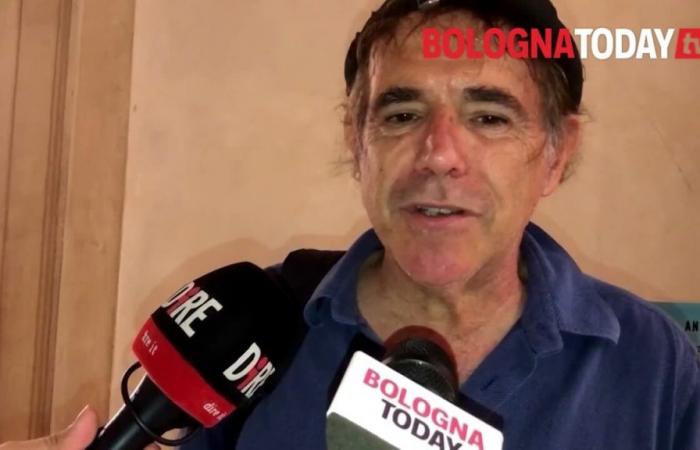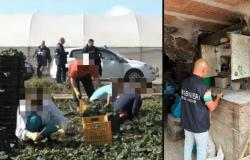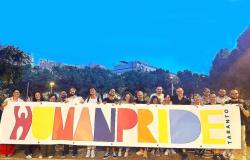HERE TO SUBSCRIBE TO THE BOLOGNATODAY WHATSAPP CHANNEL
An event that combines sport, sustainability, landscape and women’s rights. As soon as the spotlights are turned off on the Tour De France, the bicycle returns as the protagonist to celebrate a giant character in cycling.
Alfonsina Strada, from Castelfranco Emilia, then moved to a hamlet of Castenaso, was born in 1891 and participated in the Giro D’Italia in 1924, 100 years ago, when women did not vote, the last elections were held before the advent of fascism which wanted women to be wives, mothers and submissive.
“Beauty on a bicycle” a century later celebrates the distances traveled by Alfonsina Strada: from 8 to 21 July, from Matera to Bologna, 1,000 kilometers on a bike, with very different roads and means, an event that combines sport, sustainability, landscape and women’s rights.
The event was presented this morning at Palazzo D’Accursio by Roberta Li Calzi, Councilor for Sport, Simona Larghetti, Councilor of the Municipality and Metropolitan City, Andrea Satta, artist, singer, pediatrician and cyclist, Simona Lembi, Head of the Equality Plan, Morena Tartagni, cycling champion (in connection) and Antonella Tampellini, President of Fiab Bologna.
“It is a giant, its history teaches us that conquests in terms of equality are very slow” observes Lembi.
“First and only woman to participate in the Giro d’Italia and she is an icon for women’s sport, for the movement and for emancipation” said Councilor Li Calzi.
“She traveled 300 km a day – explains Satta – we only travel 100, and every evening we offer in exchange an artistic evening, a choir in every city as a community place and a meeting with the contact person of the anti-violence center”.
“Here I am, I’m not invisible yet, I too have experienced very difficult cycling, I have had to suffer injustice and prejudice first hand” says the champion Tartagni.
The Bologna evening
A hundred bicycles on rollers on the evening of July 21st in Piazza Lucio Dalla will activate the dynamos and give power to the stage that will host a long live show and the testimony of the cycling champion Morena Tartagni. And then the songs of Andrea Satta’s album “Niente di nuovo tranne te”, the musical group Têtes de Bois, il coro Farthan.
To pedal you can write to [email protected], indicating your name, surname and telephone number.
The itinerary
The itinerary, the one traveled by Alfonsina 100 years ago, goes from Matera to Bologna passing through Modugno, Canosa di Puglia, Campobasso, Castel di Sangro, Sulmona, L’Aquila, Terni, Lucignano, Imola.
Pedaling days, in practice, music and testimonials in the evening.
An itinerary that includes meetings with associations against violence against women: “Beauty by bicycle” is in fact a project conceived by Andrea Satta, musician, pediatrician and great lover of two wheels, in collaboration with the Una, Nessuna, Centomila Foundation and the Municipality of Bologna, the Teatro di Roma Foundation, the Department of Culture of the II Municipio of Rome and the patronage of the Municipality of Rome Capital, the Treccani Foundation, Fiab – Italian Federation of the Environment and Bicycle, Arci Nazionale, the Cultural Association of Pediatricians.
Who was Alfonsina?
She was born into a peasant family. She soon developed a passion for cycling and was nicknamed “the devil in a skirt”. Opposed by her family for her passion, at 24 years old, in 1915, she married Luigi Strada who, instead, encouraged her and even gave her, on their wedding day, a new racing bicycle. The following year the two moved to Milan, where Alfonsina began to train. In 1924 she took part, the first woman ever, in the Giro d’Italia.
He sets out and regularly completes four stages: the Milan-Genoa (arriving an hour behind the first but ahead of many rivals), the Genoa-Florence (where he finishes fiftieth out of 65 competitors), the Florence-Rome, arriving only three quarters of an hour behind the first and ahead of a large group of competitors, and the Rome-Naples where he confirms his resistance.
In the L’Aquila-Perugia stage, however, Alfonsina arrives outside the maximum time limit. At that point the judges are divided into two factions: those who want to exclude her and those who are in favor of letting her continue. The director of the Gazzetta, Emilio Colombo, who had allowed Alfonsina’s participation in the Giro and had understood the curiosity the first Italian cyclist in history aroused in the public, proposes a compromise: Alfonsina will be allowed to continue the race, but is no longer considered in the race. She agrees and continues her Giro.
At the arrival of each new stage she is greeted by a crowd that cheers her, celebrates her, and supports her with warmth and participation. Alfonsina continues to follow the Giro up to Milan, observing the same times and the same regulations as the riders. A tour of twelve stages for a total of 3618 kilometers, which ends with the victory of Giuseppe Enrici after the duel with Federico Gay. Of the 90 riders who started, only 30 arrive in Milan. And Alfonsina is among them.
In the following years, Alfonsina was denied the possibility of registering for the Giro. However, she participated anyway for long stretches, as she had done at her debut. She participated in numerous other competitions until in 1938, in Longchamp, she conquered the women’s hour record (35.28 km).
Widowed, she remarried in Milan on December 9, 1950, with a former cyclist, Carlo Messori, with whose help she continued her sporting activity. In fact, she opened a bicycle shop with a small repair shop in Via Varesina in Milan. Widowed again in 1957, she ran the shop alone. Every day, to go to work, Alfonsina used her old racing bike wearing a baggy skirt. She would abandon her bicycle only many years later, for a Moto Guzzi 500cc. She died on September 13, 1959 at the age of 68, due to an accident with her motorbike. (Source: Women’s Encyclopedia)
Who is Morena Tartagni?
Milena Morena Tartagni (Predappio, 21 September 1949) is an Italian road and track cyclist, active in the 1960s and 1970s. At the road world championships she won three medals, two silvers and one bronze; she also won ten national titles, two on the road and eight on the track.
She moved to Bollate (Milan). In 1966 she obtained her first victories in an “international” race in Prato and Adria (Rovigo). These victories allowed her to wear the blue jersey of the National team for the first time at the World Championships at the Nürburgring in Germany, where she was the youngest participant. In 1967 she achieved seven victories on the road, second place in the Elite national road championship and the victory of her first Italian title in the track pursuit.
In 1968 she took part in the world championships held in Imola, and came in third, the first Italian woman athlete to climb onto the world podium. In the same year she won the Italian road and track championships. In 1968 she set the world record for the 3 km on the track at the Olympic Velodrome in Rome.
In 1969 she confirmed herself as the Italian champion on the road and on the track. In 1970, she competed in the World Road Championships in Leicester (UK) placing second behind the Soviet Anna Konkina. In 1970 she won the national track championships and came second in the national road championships.
In 1971, at the world championships in Switzerland, she was again second behind Konkina, but she won the road race. In 1972 in Bassano del Grappa she won the speed and pursuit titles, but she was third on the road. She was second on the road in 1973. In 1974 she won the Giro della provincia di Varese (also in 1975), and she was third in the overall road championships. In 1976 she won the Trofeo Alfredo Binda in Cittiglio.
He stopped his sporting activities in 1980, after more than 100 victories.






